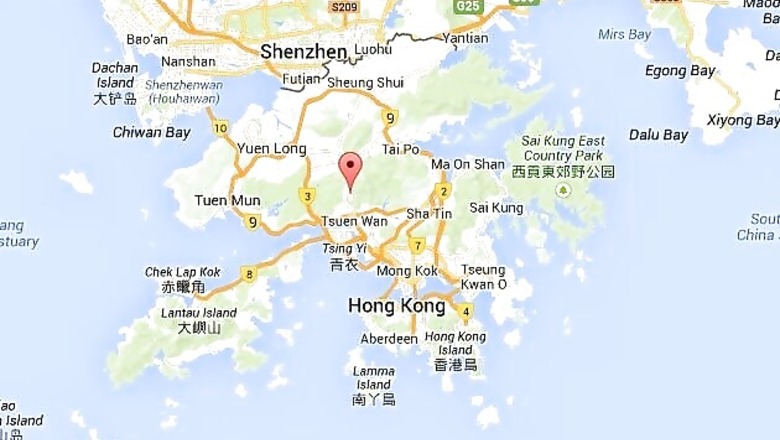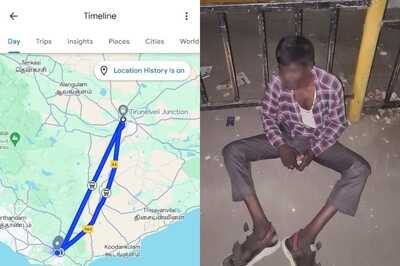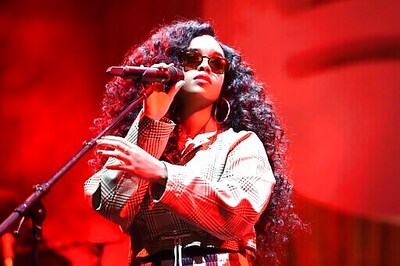
views
Hong Kong: More than 1,000 activists paraded through Hong Kong's streets on Sunday carrying huge lengths of black cloth, in a sombre protest against a recent decision by Beijing that crushed the city's hopes for full democracy.
Democracy activists in the former British colony had expectations Hong Kongers would be able to vote for their leader cut short in August when China announced plans for a highly restricted form of universal suffrage.
Under the proposal, candidates for the 2017 polls will be vetted by a pro-Beijing committee -- and just two or three approved nominees will be allowed to stand.
Occupy Central, the movement behind Sunday's march, said 4,000 participated in the rally, while police put the turnout at a more conservative figure, saying that 1,860 people took to the streets.
Protesters in dark clothing held wide strips of material half a kilometre long displaying Chinese characters painted in white that read "civil disobedience" and "boycott classes".
A coalition of pro-democracy groups, led by Occupy, have labelled Beijing's restrictions a "fake democracy" and have vowed to usher in a new "era of civil disobedience" against the decision.
Multiple student groups have also vowed to boycott classes later this month while Occupy has threatened to take over the streets of the city's vital financial district.
Protesters on Sunday shouted "Fight for democracy!" and "We won't give up!" at the beginning of the rally, as the late summer sun beat down.
"We hope that today's rally can use black cloth to express our anger and distrust at the government," pro-democracy lawmaker Lee Cheuk-yan told TVB news.
The city's current chief executive, who was himself nominated by a pro-Beijing committee, said detractors of the proposal -- which was made by the top committee of China's rubber stamp parliament -- were "cynics".
"For universal suffrage in 2017, the National People's Congress Standing Committee is ready; the Government and I are ready; Hong Kong people are ready," Leung Chun-ying said in a radio broadcast today.
Pro-democracy lawmakers have vowed to veto the proposals when it comes before the city's legislature, known locally as "LegCo".
"If the universal suffrage package is voted down by LegCo members who control just over one-third of votes, they will have a case to answer," Leung said.
Beijing's proposal must win two-thirds support in Hong Kong's 70-seat legislature where pro-democracy lawmakers control slightly over a third of seats. Britain handed Hong Kong back to China on July 1, 1997 under a "one country, two systems" agreement which allows civil liberties not seen on the mainland, including free speech and the right to protest.
But public discontent has been growing over rising inequality, increased political interference and the perceived cosy relationship between the city's powerful business elite and Beijing.




















Comments
0 comment